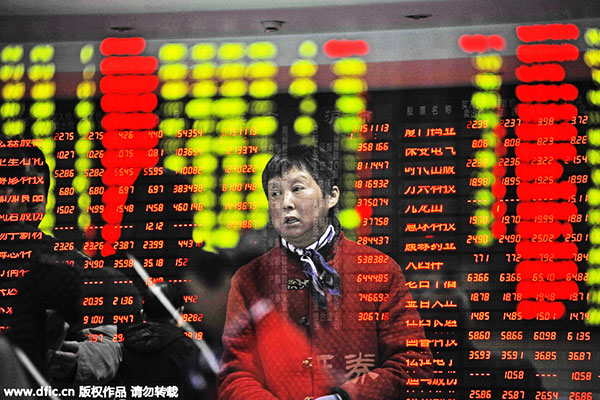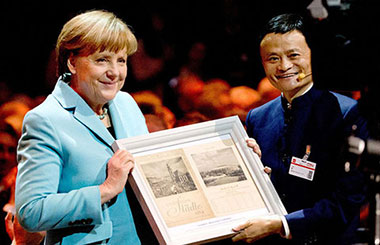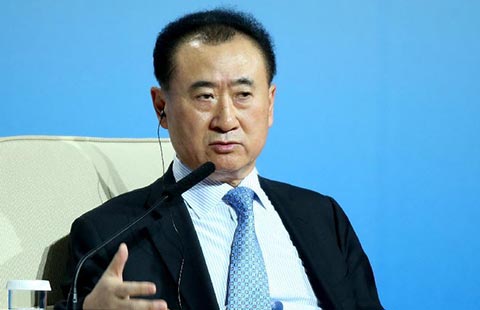Key bourses double margin requirements
By Li Xiang (China Daily) Updated: 2015-11-14 11:15
 |
|
An investor looks at an electronic trading screen at a brokerage in Nanjing, Jiangsu province, Nov 13, 2015. [Photo/IC] |
New rules to help curb leverage, prevent market volatility, says securities regulator
The Shanghai and Shenzhen stock exchanges raised deposit requirements for margin trading to 100 percent from the current 50 percent on Friday, as part of China's efforts to curb market volatility.
Margin trading refers to stock purchases made using borrowed money and was cited as one of the main culprits for the market rout earlier this year.
Securities brokerages will be required to raise the margin deposit proportion from 50 percent to 100 percent starting Nov 23, according to statements released by both bourses.
The new rules mean that investors can leverage 1 million yuan ($156,800) in their accounts to borrow up to another 1 million yuan from securities brokerages for share purchases. The existing requirement allows them to borrow up to 2 million yuan.
The deleveraging effort by the stock exchanges underscored a rising risk in the rapid and excessive buildup of margin loans as the benchmark Shanghai Composite Index has rebounded by 22 percent from its August low after the dramatic slide in the summer.
As of Thursday, the total outstanding value of margin loans reached 1.16 trillion yuan, up by more than 26 percent from the recent low of 904.1 billion yuan on Sept 30, according to data from the China Securities Regulatory Commission.
The daily margin trading value in October was 102 billion yuan, up 76 percent from the level in September. "The growth of margin loans has been substantial... Reducing the trading leverage is to prevent potential systemic risks and to protect investors' interest," Zhang Xiaojun, the CSRC spokesman, told a news conference on Friday.
Zhang said the new margin trading rules will be implemented for new trading contracts. Investors will not be required to meet any margin calls for their existing contracts, he said.
"Increasing margin requirements is a prudent decision," Gerry Alfonso, a sales trader at Shenwan Hongyuan Group Co, was quoted by Bloomberg as saying.
"While in the short term this decision could impact the equity market, in the mid to long run it would help decrease volatility," he said.
On Friday, the benchmark Shanghai Composite Index slid by 1.44 percent to close at 3,580.84 points.
In a separate announcement on Friday, the securities regulator said that it will follow the low-price principle for the approval of companies' applications for selling new shares after it resumed clearances of initial public offerings last week.
The regulator has been offering window guidance on the pricing of new shares at a price-to-earnings ratio of about 22 times.
The 10 companies that are in the first batch to resume their IPOs will publish their IPO prospectus on Nov 20, according to the CSRC.
- Tyson Food to spend $16 million on new marketing strategies
- Carlsberg to close some factories
- China, Laos sign railway deal
- ChemChina in talks to buy Syngenta
- Key bourses double margin requirements
- China-Japan business leaders to promote trust, economy
- Senior securities official under investigation
- Wanda planning theme park in Australia















